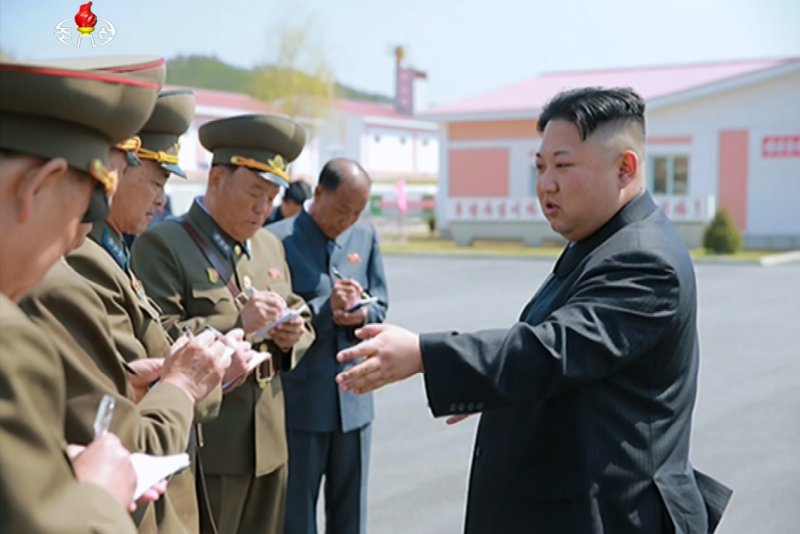Members of a U.S. think tank said must go further to combat the growing threat from North Korea after the country fired an intercontinental ballistic missile over the weekend. Photo by Yonhap News Agency/UPI
WASHINGTON -- U.S. scholars Thursday urged China to take decisive action on the growing threat from North Korea after Pyongyang's successful launch this week of an intercontinental ballistic missile.
While China is tightening up economic relations with North Korea, Chinese leaders would have to go much further to satisfy U.S. concerns, said Bonnie Glaser, senior advisor for Asia at the Center for Strategic and International Studies.
"It really goes to this issue of banks operated in northeast China that are facilitating North Korea's access to the international financial system," Glaser said at a Center for Strategic and International Studies meeting. Those banks, she said, are "enabling North Korea to engage in these illicit activities."
The ICBM test on Tuesday raised debate and concern worldwide, and U.S. officials said the two-stage missile had a range capable of reaching Alaska.
Hours after North Korea's missile test, a joint statement by the foreign ministers of China and Russia criticized the North Korea test launch as "unacceptable" and called it a severe violation of U.N. Security Council resolutions. They also urged South Korea and the United States to avoid large-scale military drills, saying a military solution should not become an option.
Nevertheless, the United States and South Korea conducted maneuvers hours after the North Korean test, by launching missiles off the eastern coast of South Korea.
While speaking with NATO allies Thursday at Warsaw, Poland, President Donald Trump warned North Korea that it could face "some pretty severe" consequences.
"It's a shame they're behaving this way, they are behaving in a very, very dangerous manner and something needs to be done about it," he said.
On Wednesday, Nikki Haley, the U.S. ambassador to the United Nations, said at a U.N. Security Council emergency meeting that North Korea's missile test was a "clear and sharp military escalation."
"One of our capabilities lies with our considerable military forces," she said. "We will use them if we must, but we prefer not to have to go in that direction."
China has been advocating a "suspension for suspension" approach to quell rising tensions over the Korean peninsula and urges the "confronting parties" -- presumably North Korea and the United States -- to sit down for talks.
Zhang Tuosheng, director of the Center for Foreign Policy Studies at the China Foundation for International and Strategic Studies, said at the meeting that China cannot afford the risks of military confrontation.
"If there is a misjudgment, there could be a military conflict, even a war and a nuclear war just at the border of China, so it's terrible," said Zhang. "Even without a war, but because of the very intense situations, the U.S. will increase its military presence [and] direct [Terminal High Altitude Area Defense missile defense] ... it's also not in the interest of China."
A report issued by CSIS at the meeting said that Beijing clearly prefers regime stability to denuclearization of North Korea, and is therefore purposefully opting not to apply maximum pressure by implementing the fullest possible sanctions.
David Finkelstein, director of China studies at Center for Naval Analyses, an Arlington, Va., non-profit think tank, said at the meeting China is facing struggles to re-examine its North Korea policy.
So far, "China has not had to choose between North Korea and South Korea," Finkelstein said, "China has been able to have both ways to a certain degree." Sooner or later, he said, "China is going to have to lean to one side of this issue and how it leans to one side of this issue will say a lot about its aspirations to world leadership."















